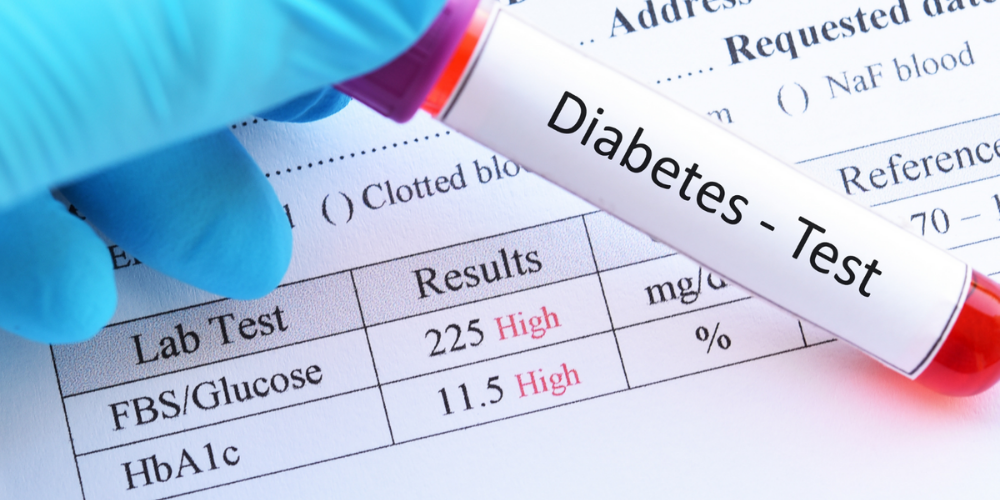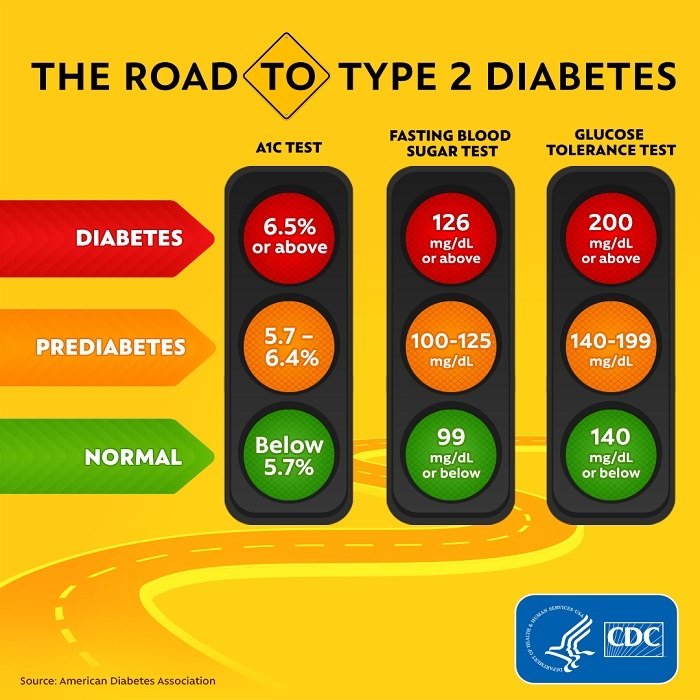Did you know that, according to the CDC, 21% of all diabetes cases are in the United States? In fact, more than 7 million Americans are living with this life-altering condition, and many don’t even know they have it. Could you be one of them?
A simple diabetes test can help you find out. If you do have this disease, it’s important to get diagnosed so you can start managing your symptoms and feel better.
November, which is National Diabetes Awareness Month, is a great time to assess your health. In addition, it’s especially prudent to be aware of your health issues now because diabetes is one of the primary risk factors associated with more severe complications in people who get COVID-19, the illness caused by the novel coronavirus.
Diabetes is one of the primary risk factors associated with more severe complications in people who get COVID-19.
When you know you have a comorbidity such as diabetes, you can be more proactive and cautious to reduce your chances of becoming infected with the coronavirus.
In this diabetes guide, you’ll learn about:
- When National Diabetes Awareness Month is
- Diabetes warning signs
- Can you test for diabetes?
- What blood test determines diabetes?
- The two types of diabetes
- Why you should get tested for diabetes
- Common reasons why people don’t get tested for diabetes
- Tips to manage diabetes
November is Diabetes Awareness Month
November is National Diabetes Awareness Month. The purpose of this month-long campaign is to raise awareness about type 1 and type 2 diabetes. Diabetes Awareness Day is on November 14 every year.
Signs You Could Have Diabetes
You should consider getting tested for diabetes if you experience a combination of these eight diabetes warning signs:
- Frequent hunger, even when you are eating enough
- Persistent thirst
- Frequent urination
- Blurred vision
- Chronic fatigue
- Bruises and cuts that heal very slowly
- Weight loss, despite an increase in food intake (a sign of type 1 diabetes)
- Numbness, tingling, or pain in the hands or feet (a sign of type 2 diabetes)
Can You Test for Diabetes?
If you’re experiencing diabetic symptoms, contact your doctor to schedule an appointment. If you live near Katy, Texas, you can contact Mason Park Medical Clinic. We specialize in a holistic approach to type 1 diabetes patient treatment and care.
Unlike doctors of medicine (MDs) who treat symptoms individually, doctors of osteopathic medicine (DOs), like myself, treat the underlying causes of symptoms and approach treatment through a patient-doctor partnership.
Not long ago, I saw a new type 1 diabetes patient who was taking the same medication for over 7 years, but was still struggling to control his diabetes. Upon review of his medication, I put him on a weight loss management plan, and made modifications to his medication. Within 6 weeks, the patient came back for a follow up and was pleased that his diabetes was now under control.
National Diabetes Awareness Month, or even November 14 — National Diabetes Awareness Day — is a perfect time to get tested for diabetes. During an assessment with me, I’ll ask you about the symptoms you are experiencing. If they line up with the type 1 diabetes description above, we will conduct a diabetes test.
What Blood Test Determines Diabetes?
The fasting plasma glucose test is the most common blood work to check for diabetes. It measures blood sugar levels after eight hours of fasting, usually in the morning before breakfast.
When you fast, it’s easier to see how much sugar is in your blood before food adds sugar to the plasma. This diabetes test involves a simple blood draw.
Blood sugar levels between 100 and 125 mg/dL indicate pre-diabetes, and levels 126 mg/dL or above indicates diabetes. You’ll typically get your test results in three to five days.
Understanding the Difference Between Type 1 Diabetes & Type 2 Diabetes
Whether you’re diagnosed with type 1 diabetes or type 2 diabetes, know that they’re both chronic diseases that will affect you throughout your life. As a result, you’ll want to work with a medical partner who will help you create the best diabetes management plan that helps you to retain a high quality of life.
The basic difference between type 1 diabetes and type 2 diabetes is that people with type 1 diabetes don’t produce insulin, while people with type 2 diabetes don’t respond well to insulin and their body loses its ability to create a sufficient amount of insulin.
Symptoms of these two variations of diabetes are present in different ways and over different time periods. Specifically, people with type 1 diabetes typically experience symptoms in childhood or adolescence. People with type 2 diabetes may not develop symptoms until many years after the condition originates.
This leads us to the last major difference between type 1 and type 2 diabetes: You can’t prevent type 1 diabetes, but type 2 diabetes develops at different life stages.
Why You Should Get Tested for Diabetes On National Diabetes Awareness Day
Finding out you have diabetes isn’t good news, but it’s the first step toward feeling better. When diabetes goes untreated, it can be uncomfortable and even dangerous. Although diabetes itself isn’t lethal, complications from diabetes can be.
As diabetes worsens, it deprives your body of blood supply so you have poor circulation. Over time, diabetes essentially kills off the body. Most people with untreated diabetes die from a heart attack, a stroke, or kidney disease.
Most people with untreated diabetes die from a heart attack, a stroke, or kidney disease.
Taking steps to manage your symptoms can help reduce the severity of the impact diabetes has on your body.
Common Reasons Why People Don’t Get Tested for Diabetes
Hesitant about getting the blood work to check for diabetes? You’re not alone. These are common reasons why people avoid getting tested.
- The Cost of Diabetes Testing
Some patients don’t come in for diabetes testing because they want to wait until they’re really sick to pay for a doctor visit. Fortunately, most health insurance plans cover the cost of a diabetes blood test. Give Mason Park Medical Clinic a call at (281) 646-0740 and we can check to see if your insurance will cover a diabetes test. - Fear of Having Diabetes
Some people just don’t want to be diagnosed with diabetes. They feel a diabetes diagnosis is a label, and they will officially have a disease they don’t want. You can’t manage diabetes if you don’t know you have it. Unmanaged diabetes can lead to diabetic ketoacidosis, irreversible damage to the organs, loss of circulation, and even death.
Here’s the good news:
As soon as you receive your diagnosis, you can start getting proper care. When you can manage your symptoms with the help of a treatment plan and a medical partner such as myself, you’ll have a better quality of life than you did before your diagnosis.
Diabetes Lifestyle Change

Many people avoid getting the blood work to check for diabetes because they don’t want to change how they live their lives.
A diabetes diagnosis comes with a lifestyle change. You can’t eat anything you want anymore; you have to watch your diet.
The key to a diabetic meal menu plan is to control your blood sugar (glucose) by the foods you choose to eat. It’s important to maintain a good balance of carbohydrates, calories and fat in your diet to avoid spikes in your blood sugar levels.
Healthy foods that are typically found in a well-rounded diabetes diet include:
- Low-glycemic carbohydrates found in certain fruits and vegetables, whole grains and low-fat dairy products
- Fiber-rich foods that can help regulate your digestion, such as certain fruits and vegetables, nuts, legumes (beans) and whole grains
- Heart-healthy fish that contains omega-3 fatty acids, such as salmon, tuna and sardines
- “Good” fats that can help lower your cholesterol, such as olive oil, avocados and nuts
We can work together to come up with a diabetic meal menu plan that works for you.
Treating diabetes also involves increasing exercise and, in some cases, taking insulin. While managing diabetes can seem daunting, a medical professional can help you create a treatment plan that will make you feel much better.
Now Is the Right Time to Take Care of Your Health
Now that you know the consequences of letting diabetes go undetected, don’t let fear get in your way of living a healthy life. Make time during National Diabetes Awareness Month — or as soon as you can — to get tested. Don’t delay if you’re experiencing the symptoms mentioned at the beginning of this article.
Give us a call at (281) 646-0740 to schedule a diabetes test or a diabetes consultation today. If you prefer, you can schedule an appointment online now.
Mason Park Medical Clinic is committed to helping each and every patient stay healthy and maintain a good quality of life. Our patient’s healthcare is our top priority. I welcome the opportunity to help you take control of your health today.





